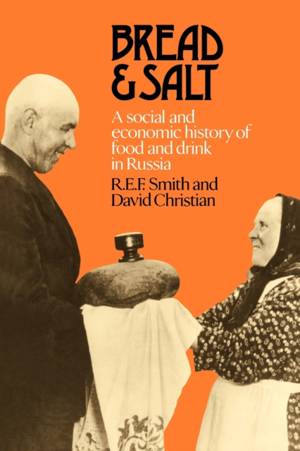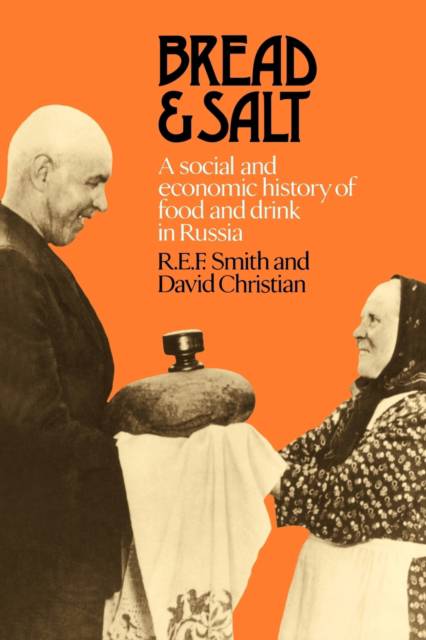
- Afhalen na 1 uur in een winkel met voorraad
- Gratis thuislevering in België vanaf € 30
- Ruim aanbod met 7 miljoen producten
- Afhalen na 1 uur in een winkel met voorraad
- Gratis thuislevering in België vanaf € 30
- Ruim aanbod met 7 miljoen producten
Zoeken
Bread and Salt
A Social and Economic History of Food and Drink in Russia
R E F Smith, David Christian
Paperback | Engels
€ 90,95
+ 181 punten
Omschrijving
Bread and Salt - a literal translation of the Russian word for hospitality - explores the social and economic implications of eating and drinking in Russia in the thousand years before 1900. Eating and drinking are viewed here as social activities which involves the economics of production, storage and distribution of food stuffs. These activities attract both social controls and state taxation; in this way the everyday process of eating and drinking is linked with the history of Russia. The dominance of grain in the diet throughout the period and the importance of salt, as implied in the title, are dealt with, as are the early Russian beer-drinking fraternities. The relatively late introduction of spirits, in the from of vodka, and it disastrous consequences in social terms are described. Tea and the samovar, also much more a latecomer than is generally realized, did little to diminish excessive drinking. Drinking, in any event, was by no means discourage by the state, since it was a major source of state income. The final section of the book looks at rural diets in the nineteenth century, when some variation and new items, such as the potato, became important. At the same time, peasants depended basically on the grain crop, as they had for thousands of years. Forced by txation to enter the market, afflicted by severe famines towards the end of the century, many peasants ate and drank no better as a result of the modernization of the county.
Specificaties
Betrokkenen
- Auteur(s):
- Uitgeverij:
Inhoud
- Aantal bladzijden:
- 412
- Taal:
- Engels
Eigenschappen
- Productcode (EAN):
- 9780521089630
- Verschijningsdatum:
- 6/11/2008
- Uitvoering:
- Paperback
- Formaat:
- Trade paperback (VS)
- Afmetingen:
- 152 mm x 229 mm
- Gewicht:
- 603 g

Alleen bij Standaard Boekhandel
+ 181 punten op je klantenkaart van Standaard Boekhandel
Beoordelingen
We publiceren alleen reviews die voldoen aan de voorwaarden voor reviews. Bekijk onze voorwaarden voor reviews.








